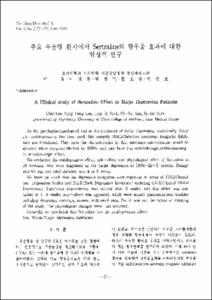韓國貿易 政策의 新保護 貿易主義에 對한 對處方案一考
- Alternative Title
- A Study on the Korean Trade Strategy Coping with Neo-Trade Protectionism
- Abstract
- 70년대 초부터 본격화한 신보호무역주의는 선진국에 의해 주도되며 각종 비관세장벽을 동원하여 낙후된 산업을 보호하고 개도국 특히 신흥공업국에 대한 규제를 더욱 강화한다는 점에서 과거의 보호무역과 그 양상과 깊이가 다르다. 이는 한국경제의 지속적 성장의 지대한 장애요인인바, 획기적인 무역정책의 전환이 요구되고 있다.
신보호무역주의의 배경은 선·후진국간의 비교우위변화와 선·중진국간의 산업구조의 유사성 내지 구조적 경직성, 그리고 국제금융질서의 변화에 있다고 보았다. 신보호무역의 실태를 보면 비관세장벽을 강화시키는 것은 물론 GATT의 예외조항 남용, MFA의 타부문적용 확대, GSP수혜폭 축소 및 잔존수입제한 조치의 철폐 거부 등이다.
이때문에 영향받는 한국무역의 충격은 무역의 축소균형과 무역수지악화, 품목규제에 의한 관련산업투자 위축 및 고용기회의 감소 등으로 나타나는바 이에 대처방안은 보다 긴 안목에서 수출의 지역별 집중과 품목별 집중현상을 개선하고 실적위주의 지원정책을 배제함과 아울러 출혈수출을 억제하여야 할 것이다.
Developed countries adopted Neo-Trade Protectionism in the 70's and have since strengthened and renewed the policy in various aspects. Accordingly, developing countries (including Korea) have suffered from the additional burden of trade-strategy.
In this thesis, I, first of all, survey the background and theory of No-Trdae Protectionism, Second, I state the most controversial aspects of Neo-Trade Protectionism item by item NTB, the abuse of the Escape Clause of GATT, and the expansion tendency of MFA to the other areas. Third, I discuss the in fuences of the economy of Korea.
Finally, I study the ways for Korea to cope with this critical situation and conclude that the counterplans can be found in the improvement of regional and item concentrations and the restraints of the profit-down exhort strategy and the dumping export.
Developed countries adopted Neo-Trade Protectionism in the 70's and have since strengthened and renewed the policy in various aspects. Accordingly, developing countries (including Korea) have suffered from the additional burden of trade-strategy.
In this thesis, I, first of all, survey the background and theory of No-Trdae Protectionism, Second, I state the most controversial aspects of Neo-Trade Protectionism item by item NTB, the abuse of the Escape Clause of GATT, and the expansion tendency of MFA to the other areas. Third, I discuss the in fuences of the economy of Korea.
Finally, I study the ways for Korea to cope with this critical situation and conclude that the counterplans can be found in the improvement of regional and item concentrations and the restraints of the profit-down exhort strategy and the dumping export.
- Issued Date
- 1985
- Type
- Research Laboratory
- Alternative Author(s)
- Park,Dong-Rhyul
- Publisher
- 연구논문집
- Language
- kor
- Rights
- 울산대학교 저작물은 저작권에 의해 보호받습니다.
- Citation Volume
- 16
- Citation Number
- 2
- Citation Start Page
- 441
- Citation End Page
- 461
- Appears in Collections:
- Research Laboratory > University of Ulsan Report
- 파일 목록
-
-
Download
 000002024788.pdf
기타 데이터 / 296.73 kB / Adobe PDF
000002024788.pdf
기타 데이터 / 296.73 kB / Adobe PDF
-
Items in Repository are protected by copyright, with all rights reserved, unless otherwise indicated.